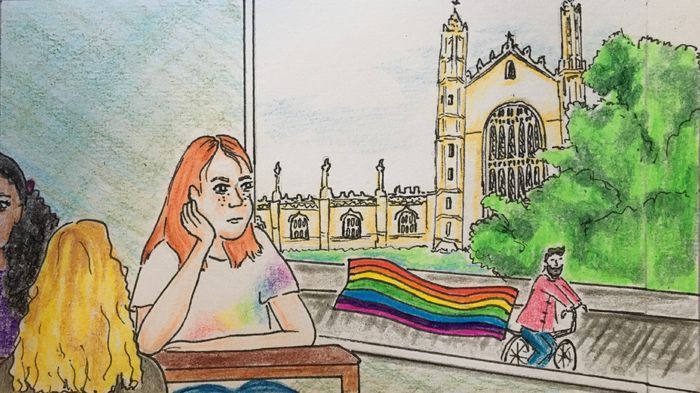What’s in a name?
As we venture into Pride Month, an anonymous student reflects on their journey with the intricate meaning of names in the context of the transgender and gender non conforming community

Names are complicated little things. They’re the labels that describe so much about a person, be it age, gender, or culture. But what do you do when the label given to you, inscribed on every piece of official documentation and shaping every interaction you have, doesn’t seem to fit? I’m fully aware of the irony of publishing this article anonymously, but that’s part of the struggle. Of my several names — the public, the private, the somewhere in between — which one would I publish it under?
When I applied to university, I knew I wanted it to be a fresh start. As part of this, I wanted to go by a different name, not the legal one under which I had been labouring for most of my life. But this in itself presented a whole series of problems to be solved. Naming yourself, it turns out, is a long and protracted process, and I don’t envy my parents one bit. After months of experimenting with different names (in the security of my own head, of course), I settled upon the name with which I would begin my university career.
“Beyond the convoluted procedure of selecting a name, I also had to decide who would know me by the new name, and who would continue with the old”
I wasn’t confident enough to come out and declare this as my preferred name, full stop. Instead, I introduced myself with this new name, explaining it was a nickname and hoping nobody would press further. Thankfully, nobody has; I don’t know what I would say if they did. But combining the stress of carving myself a new identity in an unfamiliar place with a new name — a new brand, almost — was not what I needed in that first term.
Beyond the convoluted procedure of selecting a name, I also had to decide who would know me by the new name, and who would continue with the old. Already, I had different names being applied in different situations, such as embarrassing family nicknames that I would hate anyone else to know, but determining where the dividing line would be between those using my legal name and those using my preferred name was an additional concern.
So far, I’ve opted for letting people from home and in professional contexts use the legal name, while people I know socially at university are told the nickname straight off the bat. This is in part out of cowardice, or fear; it’s so much easier to introduce yourself with a nickname when the person has never heard your legal name or is not used to it. Asking someone to make the shift from the legal name to a nickname scares me, in all honesty. Online, it’s a different story, typing in a different name and being done with it, but in real life, it’s a challenge.
It’s not all an unending story of uncertainty and dread, however. When people use my preferred name, it’s like a little shot of euphoria every time. But with that spark of joy, there’s also a twinge of fear. If people who don’t know about the nickname, from before uni, come into contact with people who do use the nickname — how am I supposed to explain?
“It’s the tension between personal safety and comfort, and the impulse to stop ‘living a lie’”
If it were just a matter of personal preference — the difference between Charlotte and Lottie, for instance — then perhaps it wouldn’t be such a nerve-wracking experience. But as it is, firmly related to my gender identity and its inherent instability, trying to explain why I want people to use a name that might appear aligned to a different gender to that which I was assigned at birth is a risky business.
With the advent of Pride Month and the increased visibility of trans and gender non-conforming (GNC) people, using a different name in different contexts doesn’t feel good. It’s the tension between personal safety and comfort, and the impulse to stop ‘living a lie’. I have friends who call me by my preferred name who know nothing about my gender identity, and friends from school who call me by my legal name despite knowing about my struggles with gender and its expression. If they were ever to meet, the confusion would be almost as entertaining as it would be stressful.
I suppose what I’m trying to say here is — names are important. They can carry as much or as little meaning as you want, and it should be your decision who calls you by which name. Particularly for my fellow closeted or semi-closeted trans and GNC people — we’ve got this.
 News / Clare Hall spent over £500k opposing busway 24 December 2025
News / Clare Hall spent over £500k opposing busway 24 December 2025 Comment / The ‘class’ of Cambridge24 December 2025
Comment / The ‘class’ of Cambridge24 December 2025 News / Caius mourns its tree-mendous loss23 December 2025
News / Caius mourns its tree-mendous loss23 December 2025 Comment / League tables do more harm than good26 December 2025
Comment / League tables do more harm than good26 December 2025 News / Girton JCR publishes open letter expressing solidarity with Palestine25 December 2025
News / Girton JCR publishes open letter expressing solidarity with Palestine25 December 2025










